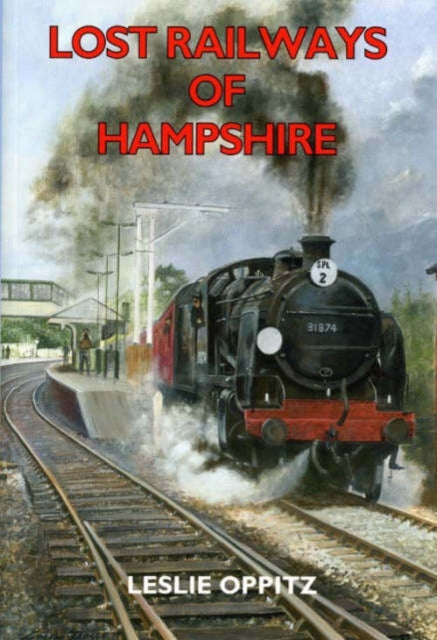Oppitz, Leslie
Lost Railways of Hampshire
Lost Railways of Hampshire
Couldn't load pickup availability
Author: Oppitz, Leslie
Hampshire
Published on 3 March 2015 by Countryside Books in the United Kingdom as part of 'the Lost Railways' series.
Paperback / softback | 160 pages, 124ill.9M.
210 x 152
This illustrated and carefully researched book takes you back to the golden age of railways in Hampshire - to a time of thriving rural railways, bustling local stations and steam trains pulling liveried coaches across the countryside.
Author Leslie Oppitz brings the story of Hampshire's railways vividly to life - the reasons for their construction and for their subsequent closure. Modern photographs accompany those from earlier times. These, together with specially drawn maps, will help those who wish to explore the old lines and stations that have survived.
Hampshire is unique in railway history. It was one of the earliest counties to have a main line and one of the last to relinquish steam.
A line linking London with Southampton was first proposed in 1831, but it was not until July 1834 that work began. At that time Southampton was little more than a fishing village, although it was fast showing signs of development into a commercial port.
During the 1840s expansion was rapid. Several railway promoters were looking towards Portsmouth and its naval traffic. There were also plans to extend westwards towards Exeter and to provide a north-south link to Southampton via Newbury and Winchester.
The battles between different companies were bitter and expensive. To the north of the county, lines were built to prevent the GWR reaching Southampton and to the east, the struggles between the London and South Western Railway (L&SWR) and the London, Brighton & South Coast Railway (LB&SCR) were many, culminating in the famous Battle of Havant in 1858. The heyday of the railways was short-lived and by the 1920s, they began to decline. The 1950s saw railways give way to increasing road competition and after the Beeching Act of the early 1960s, many more were lost.
This book recalls the history of these lost lines. Originally published under the title Hampshire Railways Remembered, this book appears here in a revised, updated and expanded new format.
If you cannot find the book you're after, please click here.
View full details

